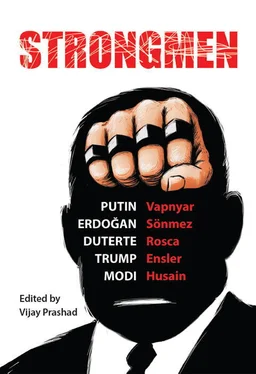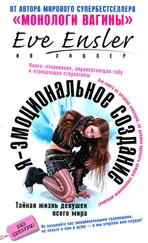If the Government wants a further security from me then I and my brother are perfectly willing to give a pledge of not participating in politics for a definite and reasonable period that the Government would indicate… This or any pledge, e.g., of remaining in a particular province or reporting our movements to the police for a definite period after our release—any such reasonable conditions meant genuinely to ensure the safety of the State would be gladly accepted by me and my brother.
After much cajoling and pleading, Savarkar was transferred to a prison on the Indian mainland in 1921, and then he was released in 1924. In prison, Savarkar wrote Essentials of Hindutva (1923) and then, out of prison, he wrote his manifesto— Hindutva: Who is a Hindu? (1928). In this latter book, which is the foundation of the ideology of the RSS, the BJP, and of Modi, Savarkar expounded his theory of territorial nationalism. Unless a people’s beliefs, religion, and myths do not align with their territorial nationalism, their loyalty to the nation is suspect. Muslims and Christians, he declared, had other territorial loyalties, and were therefore not to be trusted. The loyalty of the Muslims, he writes, “must necessarily be divided between the land of their birth and the land of their Prophets… Mohammedans would naturally set the interests of their Holy land above those of their Motherland.” Nationalism, which in India had a broadly ecumenical social sensibility, was reduced to religion—to the feeling of Hinduness, namely Hindutva. To be a nationalist was not to fight against British rule and to free India from imperialism. That kind of nationalism would welcome all those who fought against the British Raj—whether Dalits or Adivasis or Parsis or Bohras or Gorkhas or Nagas or Kashmiris or indeed Muslims of the Gangetic Plain or Hindus of the Deccan Plateau. That form of anti-colonial nationalism was anathema to Savarkar. It is that nationalism that sent him to prison in the Andaman Islands. His new nationalism was not against the British Raj. It was against his fellow Indians. Which is why the British allowed him to freely propagate his ideas—to hold sabhas and religious gatherings, to divide society for the benefit of the British rulers.
Well before he articulated his theory of Hinduness, Savarkar revealed his bigoted streak. At the age of twelve, he led a mob to vandalize a mosque.
There is a thick line that unites Savarkar to Modi. When he was released from prison, Savarkar met a disgruntled ex-Congressman, K.B. Hedgewar, who found in Savarkar his ideological anchor. A month after they met, in September 1925, Hedgewar founded the RSS. This organization, with its long history of violence against Muslims, is Modi’s home.
To preach hate—as the RSS does—is not enough to draw in sufficient numbers of people to one’s side. Savarkar knew that people of good faith must be deceived in order to follow his movement He wrote his autobiography, Life of Barrister Savarkar (1926), under a false name—Chitragupta. It is an unabashed eulogy to Savarkar, with Savarkar as his own fanboy. The book is not easy to read because it glows so brightly for the subject, who is the author himself. Savarkar, Savarkar writes, “seemed to possess no few distinctive marks of character, such as an amazing presence of mind, indomitable courage, unconquerable confidence in his capability to achieve great things. Who could help admiring his courage and presence of mind?” (Ravindra Ramdas, the official publisher of Savarkar’s book, revealed in the 1987 edition that Chitragupta was none other than Savarkar himself).
Courage? After he escaped conviction in the trial regarding the assassination of Gandhi, Savarkar once more begged the government to allow him to escape unscathed. “I shall refrain from taking part in any communal or political activity for any period the government may require in case I am released on that condition,” he wrote. The author of Hindutva and the architect of the RSS drifted through history with this kind of cravenness.
RSS
The RSS is Modi’s home. Savarkar is his ideological grandfather. But there are fathers closer yet—RSS leaders Hedgewar and M.S. Golwalkar. Under Modi’s skin sits the scent of these men and their visions.
Hedgewar (1889-1940) was a young medic from Nagpur. We know little about his early years. As a Congress volunteer in 1920-21, he was arrested for a vitriolic speech on behalf of the Khilafat movement. But such wide nationalism would not appeal to him for long. He came under the wing of the radical Congress leader Dr. B.S. Moonje (1872-1948). Moonje is the link between European fascism and the RSS. On his way back to India after the Round Table Conference in London in 1931, Moonje stopped off in Italy. While in Rome from March 15 to 24, Moonje visited the Fascist Academy of Physical Education and the Opera Nazionale Balilla, the fascist youth organization. He was taken by the discipline and the fervor. Over two pages of his diary, Moonje writes of the Balilla’s role in indoctrinating the youth of Italy into the fascist system. RSS drills—developed by Moonje—have their roots in the Balilla’s weekly meetings, paramilitary trainings, and parades. Moonje delivered these elements of European fascism to the RSS through Hedgewar and Hedgewar’s successor, M.S. Golwalkar (1906-1973). It was Golwalkar who would offer the most direct link between the ideology of European fascism and the RSS. In his book We or Our Nationhood Defined (1939), Golwalkar wrote:
Come we next to the next ingredient of the Nation idea—Race, with which culture and language are inseparably connected, where religion is not the all-absorbing force that it should be. German Race pride has now become the topic of the day. To keep up the purity of the race and its culture, Germany shocked the world by her purging the country of the Semitic races—the Jews. Race pride at its highest has been manifested here. Germany has also shown how well-nigh impossible it is for races and cultures, having differences going to the root, to be assimilated into one united whole, a good lesson for us in Hindustan to learn and profit by.
This was written before the full evidence of the Final Solution—the Holocaust—was clear. But, in the second edition of the book from 1944 and in the third edition from 1945—long after the full horror of the Nazi project was clear—Golwalkar retained this paragraph.
What of fascism appealed to these men? The fascist obsession with social homogeneity and uniformity echoes through the ideology of the RSS. Unlike the subcontinent’s general tradition of social inclusivity, the RSS drives a singular version of identity—Hindutva. The RSS opposes any version of Hinduism that challenges the obsessive singularity of Hindutva.
Perhaps the RSS would not have been able to drive its ideology into the mainstream if the bourgeois parties—supposedly secular—had not toyed with religious sentiment for political ends. For instance, the Congress Party used religious division to weaken the communist influence in the trade unions of Bombay, but it was the authentic party of religious division—the Shiv Sena—that earned the dividends. Or, the Congress would be afraid of confrontation against the RSS for fear of losing their hard-core Hindu voters, such as when Chief Minister Govind Ballabh Pant refused to arrest RSS functionaries—at the threshold of independence in 1947—who had been caught red-handed with a cache of inflammatory literature, maps, and weapons to use in sectarian riots in Uttar Pradesh. Or, the Congress refused to displease the hard-core Muslim clerics, such as when Prime Minister Rajiv Gandhi overturned the Supreme Court ruling to grant maintenance to Shah Bano. Gandhi pushed through the Muslim Women (Protection on Divorce) Act of 1986 that delighted the mullahs and conservative Muslim men. These were diversionary tactics by the Congress Party to fool the electorate and to maintain power. But it was not the Congress that was able to control this dynamic. The RSS and the BJP rode the wave of offensiveness.
Читать дальше











